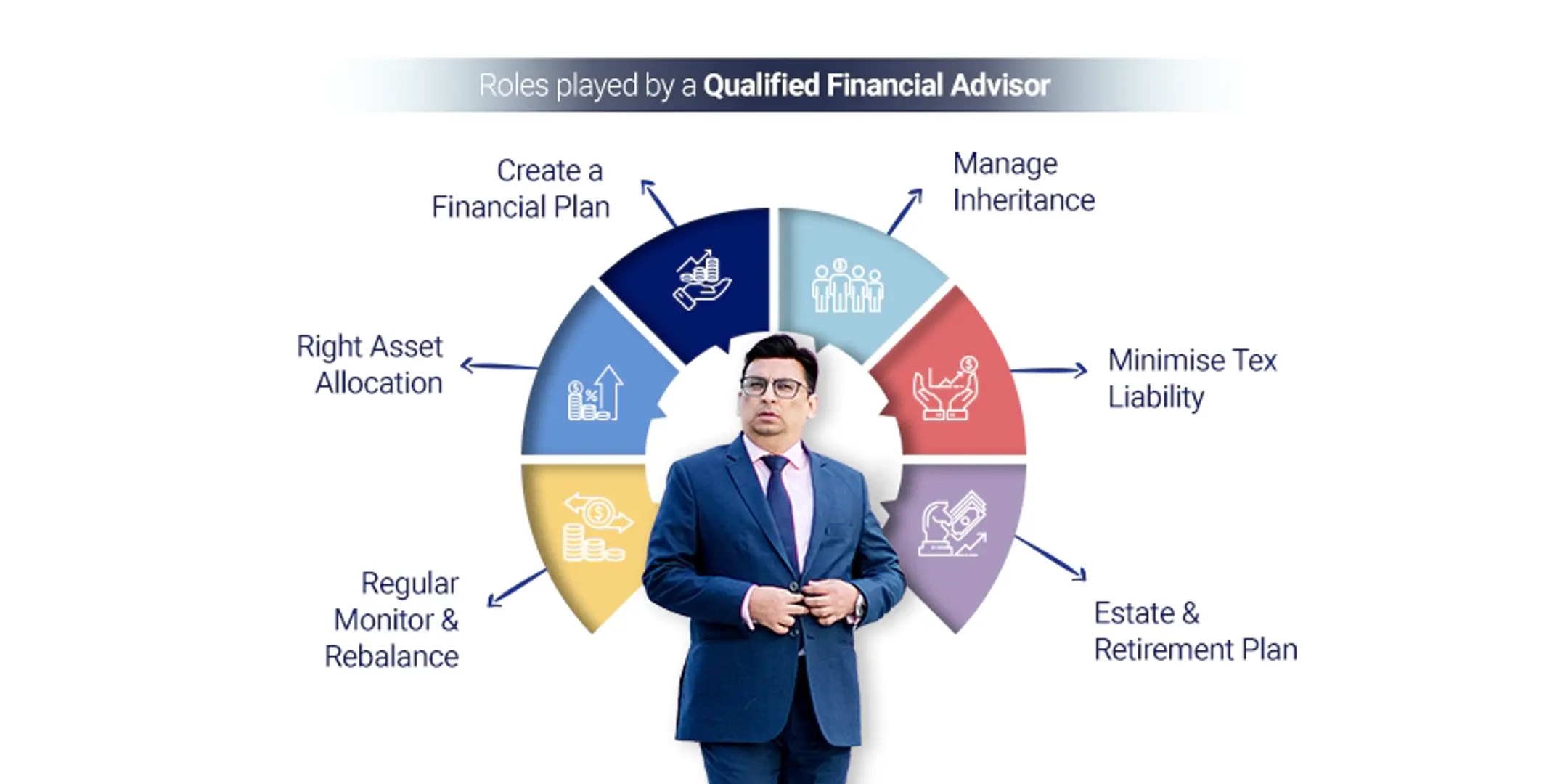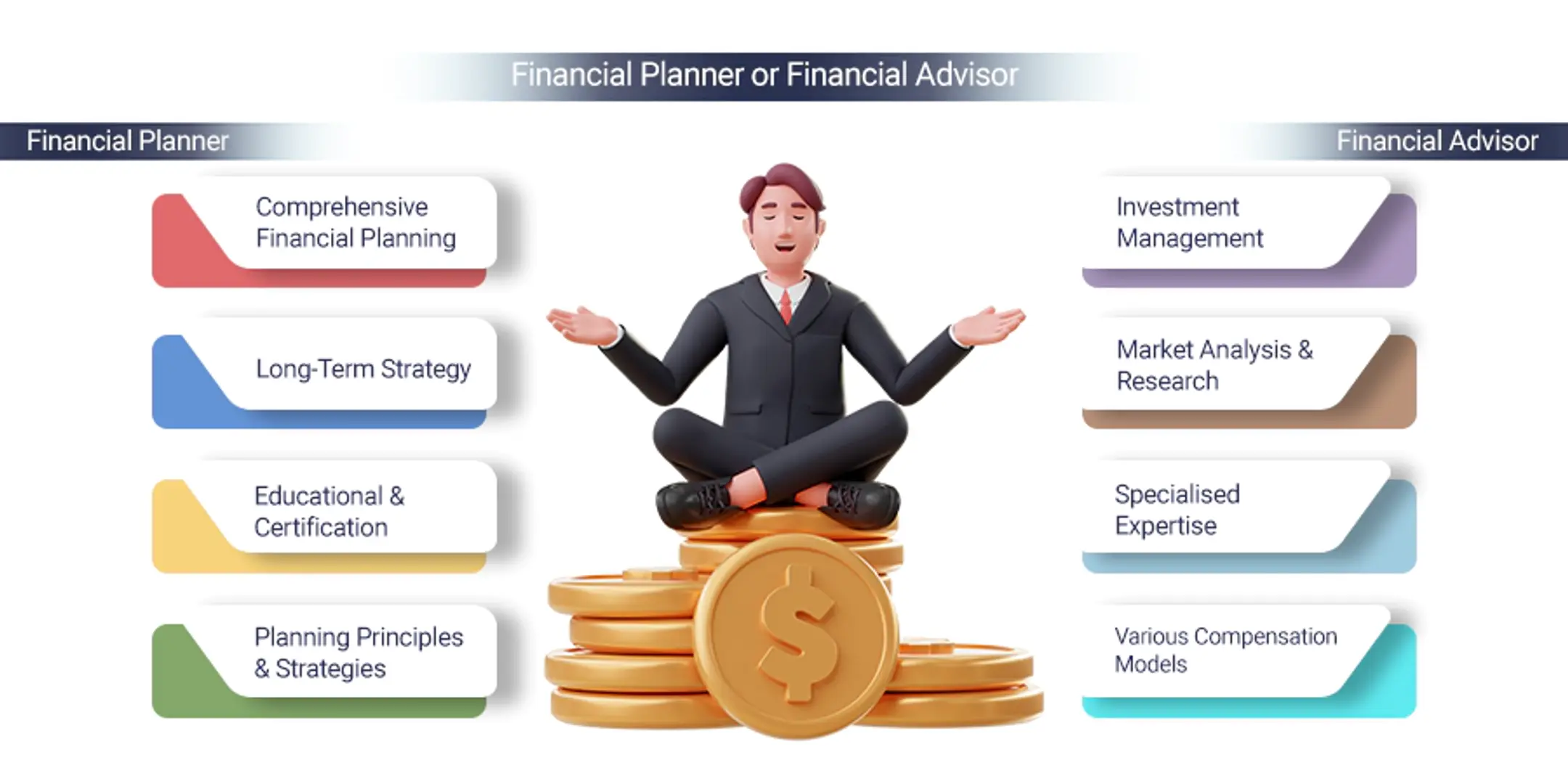The United Arab Emirates has seen unprecedented growth in the financial industry. In UAE, Dubai is one of the most prominent financial hubs in the region.
Of course, this is not without the help of financial advisors in Dubai.
Dubai truly is a hub for many of today’s start-ups, entrepreneurs, companies, and more. It stands as a shining economic light on a global level.
Thus, attracting an impressive amount of people who want to be a part of its overall movement.
On the flip side, financial planning is essential when living in this part of the world. This is because it will grant you the best opportunities to make your dream future a reality.
Let’s take a deeper look into the role of financial advisors and the benefits they offer to their clients.
A financial advisor is a crucial asset to anyone looking to invest their hard-earned money.
Advice is tailored around how much someone wants to invest and when they want to review it.
A financial advisor provides guidance and decision-making skills in choosing the right investment, how much, and when someone should review their progress.
If you do not know much about investing but would like to learn how to invest in the financial market, then having this person tell you where and when will help you get what you need to make more money.
Having a financial advisor determine your asset allocation and investment strategy is an important piece of the puzzle when it comes to making funds grow over time.
Sometimes you might feel stuck on where to go next with your investments. But, a financial advisor supporting you and telling you what needs to be done can prove to be beneficial in the long run.
Good financial advisors will be able to help you manage your investment portfolio like everything from finance, investments, and taxes to estate planning.
Digital platforms and services are paving the way for more financial advisors to become a one-stop-shop solution. Investors can now have a single point of contact for all kinds of investment-related services.
No matter how well you know about financial matters, it’s a good idea to consult an advisor.
So you can avoid financial risks and get unbiased advice because they have impartial knowledge about investment portfolio management.

This title is used to describe many different types of individuals who are involved in the financial marketplace.
Equities brokers, insurance specialists, tax preparers, investment managers, and financial planners all fall under this category.
Estate planners and bank agents may also receive the title “financial advisor”.
They offer advice based on their understanding of your current financial position and situation. They also help you decide ways to change or improve it.
Advisors help people with a wide variety of financial needs suited to your needs. Are you not sure where to begin when getting advice about your finances?
Start by contacting different types of advisors and researching what services they offer.
Trusted financial advisors will sit down with you and determine which investment opportunities are right for your situation depending on how much risk you’re willing to take.
If that isn’t what is needed at this time, they may suggest a debt consolidation plan or insurance options to find the best deals available that fit with your budget.
There are so many ways a good advisor can help someone. However, the most important thing is to make sure you can trust the advisor you hire.
A good advisor also wants nothing more than for their clients to succeed in whatever financial goals they may have.
A financial planner is a type of advisor who offers business or individual clients advice on investment planning, taxes, life insurance, retirement savings, and/ or estate planning.
They may have additional licensing or certifications conferred by the Certified Financial Planner (CFP).

CFP-certified professionals are specially trained to offer investors an economic plan for retirement savings and security.
It includes helping them identify their short-term, mid-term, and long-term financial needs.
Financial advisors are much like managers. They hold themselves responsible for every aspect of your financial growth and investment management needs.
Advisors help you plan how to achieve your financial goals and provide services to help you assess your wealth, tax planning, and investment strategies.
They work with individuals and businesses together with banks and other types of financial institutions to focus on liability management and implement the best savings plans available in order to reach their target net worth.
By using good-faith negotiation tactics they can also help in maximizing the returns on any of your financial assets by finding deals and investment options you must not have considered yet!
A piece of oft-overlooked advice being widely supported by some advisors, business experts, and industry specialists recommend a financial technique commonly dubbed as the ABC Rule.
According to them, if you are from country A and currently reside in country B, you should invest in the financial institutions found within country C.
Offshore banking options have become very popular in the modern era of business and money management.
This type of banking is used when people want to avoid high taxes that they might have to pay. This can be within their current country or domicile.
However, we must make it clear that we are not referring to any type of fraudulent activity.
This option is simply a way for individuals to reduce their tax burden or legally reduce their average annual cost percentage by strategically minimizing taxes over time and moving some of their assets overseas to where they will have more freedom with regard to how they manage those funds and/or use them at different periods throughout the year.

Make sure your financial planner is both, licensed and qualified, to guarantee that advice given to you is of the highest quality.
As a client looking for a new financial advisor, it’s essential you do sufficient research into their background before hiring them because the wrong decision here could cost you dearly in years to come!
On the whole, working with a qualified and registered financial advisor will keep your future secure.
This is why it’s important you find someone who is licensed by firms like Dubai Financial Services Authority or Securities and Commodities Authority.
Being accredited by one of these bodies shows they are licensed to practice in the financial industry here in the Emirates.
It shows that the advisor has adequate experience in dealing with investors like you!
The more complex your financial situation, the greater risk you are subject to. Take it from the financial advisors in Dubai— the expertise that awaits you is incomparable.
Firms like ours, work hand in hand with their clients to define the most advantageous monetary options for their customers.
The expert advisors will determine your priorities throughout this process as well as act as liaisons between yourself and other financial institutions toward achieving your most pressing financial objectives.
By cooperating with a team of financial specialists, ex-pat families, and locals may also benefit from exciting opportunities such as insurance coverage and safety plans; leaving out the unnecessary frills while maximizing core benefits.
Also Read: How Can A Wealth Management Firm Benefit You
A financial advisor’s most valuable asset is their ability to evoke trust in their client.
Building a sustainable business isn’t easy, especially when you have to worry about matters that go beyond finances.
If you don’t have the right qualities for this position like being trustworthy and unbiased, then it is unlikely that your clients will trust you or that your business will thrive for very long.
After all, giving one’s clients unbiased financial plan opinions by creating comforting environments is also among the top qualities that make for someone to be able to trust an advisor in the first place.
This breed of service goes a long way when working alongside an advisor because it allows them to devote themselves to their clients and have peace of mind knowing that they’re always in good hands!

Keeping this in mind, here are the 10 most important questions to ask potential financial advisors in Dubai-
Before you enter into a relationship with an agency or service of independent financial advisors, it is important to understand what the advisor’s fees are and how they might impact your investments.
For example, an advisor may charge an annual management fee based on your portfolio’s net asset value.
This will typically be between 1% – 2% of your annual portfolio balance. However, fees may be higher or lower depending on the type of money managed.
A range of advised investments will normally also carry other fees to cover operational costs, so when speaking to potential financial advisors in Dubai, it is important to collect accurate information about the fees.
These could be investment-specific fees alongside commission and performance compensation charges.
Some of the financial advisors are generally just stockbrokers who are being paid to sell proprietary mutual funds and stocks.
These are known as fee-based advisors. It’s because the advisor receives a percentage of the money made off the products that you choose in your portfolio.
They are incentivized to push these products because they receive commission payments on each sale.
As an investor, it’s important to do your homework when it comes to researching and finding professionals who best suit your individual needs but always be wary about others with high-commission tendencies.
Also, not all brokerages have productive advisors. So, if in doubt, ask questions.
Registered investment advisors (RIA) or investment advisor representatives (IAR) are the ones who work under this title.
They have greater accountability to provide their clients with the best plan, and they must hold themselves accountable to the ethics surrounding trading and investing in securities.
The other payment plans could include:-
Financial advisors charge a variety of fees based on the level of service they provide.
For example, financial advisors that specialize in retirement planning may charge more than a coach who helps you develop better money management and budgeting skills for the future.
It can be difficult to pinpoint how much you should pay for personal financial advice because of these variances and variations.
Should you prefer long-term funding opportunities along with data analysis and strategic investment planning reports from someone who’s also got a proven tendency to tailor their offerings specifically to your unique needs and goals, chances are this advisor will cost more but will certainly deliver.
Just like a fitness trainer helps you achieve your ideal body, the best financial advisors in Dubai can help you design the financial plan and future you want.
The financial advisor is sometimes described as a “money coach” within the industry of money management.
It is because they shepherd people from their current financial situation – wherever that may be – until they end up at their ideal destination.
Financial advisors can help you achieve your next big purchase and also provide tips for growing your savings.
They are constantly networking with other professionals in the industry and therefore know about any good deals right now when it comes to loans and investment opportunities.
So, it is always best to work with an experienced professional in such matters.
This is because they have more information from working directly with fellow professionals daily and their years of experience.
Look no further! As one of the leading financial advisory firms in Dubai, Quadra Wealth Management is able to offer a complete range of services and independent financial advice that can help you to plan your financial future.
Whether you are looking to plan for your retirement or you want to take a big leap and start a business venture, we can provide you with the advice and support you need to get the results you want.
What is the role of a financial advisor in Dubai?
A financial advisor in Dubai provides guidance and decision-making skills in choosing the right investments, managing portfolios, and planning for financial goals. They offer services related to finance, investments, taxes, estate planning, and more.
Why should I hire a financial advisor in Dubai?
Hiring a financial advisor in Dubai can be beneficial, especially if you are unfamiliar with investing or need expert guidance. They can help you make informed investment decisions, manage your portfolio, minimize financial risks, and provide unbiased advice tailored to your financial situation and goals.
What is the difference between a financial planner and a financial advisor in Dubai?
A financial planner in Dubai focuses on offering advice on investment planning, taxes, insurance, retirement savings, and estate planning. On the other hand, a financial advisor is a broader term that encompasses various professionals in the financial marketplace, including equity brokers, investment managers, and financial planners.
How do I know if a financial advisor in Dubai is qualified?
It’s important to ensure that your financial advisor is licensed and qualified to provide financial advice. Look for certifications such as Certified Financial Planner (CFP) and check if they are registered with reputable financial authorities like the Dubai Financial Services Authority or Securities and Commodities Authority.
What services can I expect from a financial advisor in Dubai?
A financial advisor in Dubai can assist you with various financial aspects such as investment planning, savings strategies, business plans, insurance options, tax planning, estate plans, retirement planning, pension plans, and repatriation. They work with you to define your financial goals and implement strategies to achieve them.
How do financial advisors in Dubai charge for their services?
Financial advisors in Dubai may charge fees based on different structures such as an annual management fee, commission-based fees, hourly rates, flat fees, or retainer fees. The fees can vary depending on the advisor’s expertise and the level of service provided. It’s important to clarify the fee structure before engaging in their services.
Should I choose a commission-based or fee-only financial advisor in Dubai?
Commission-based advisors receive a percentage of the money made from the products they recommend, while fee-only advisors charge fees directly related to managing your assets. Each type has its own advantages and considerations. It’s essential to understand the fee structure and potential conflicts of interest associated with each type before making a decision.